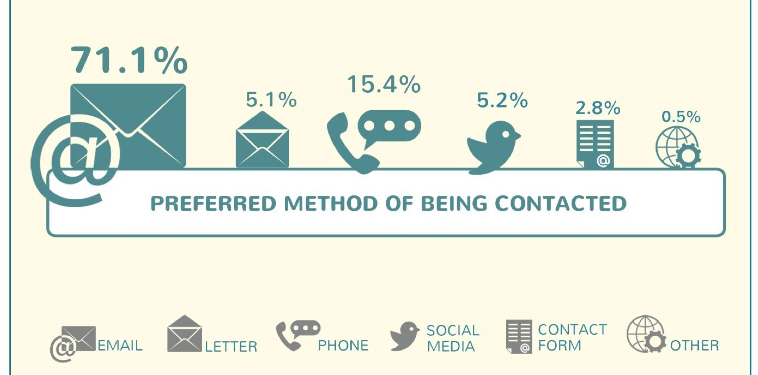Almost two-thirds of international students consider offline communication as important as online information when researching higher education options according to a TopUniversities.com Students Online: Global Trends 2014 report.
News and business analysis for Professionals in International Education
Have some pie!
HE offline recruitment channels a valued resource for students

TopUniversities.com, the online arm of QS World University Rankings, interviewed 2,215 prospective and current students from 49 cities in 35 countries across Europe, Asia, North America, Latin America and Africa to discover their preferred methods of communication and problem areas.
Results show most students regard email as a preferred means of contacting and being contacted by a university, while a significant number of participants also favoured phone calls and letters, including respondents 17 and under who were least likely to prioritise digital channels.
“The report highlights the importance of not neglecting more traditional forms of communication”
“The report highlights the importance of not neglecting more traditional forms of communication,” Simona Bizzozero at QS told The PIE News.
“A letter in the post still feels as a tangible and somewhat more personal means of communications for many respondents, most surprisingly the younger ones.”
“QS strongly believes in a blended approach to researching the right course and we advise universities to provide the same blended options. Face-to- face interaction remains essential for many students,” said Bizzozero.
In support of Bizzozero’s statement, one PhD student who participated in the survey said: “The people I spoke to, in person or by email, played the biggest role. That was more helpful than just relying on what a website says.”
The study showed that students continue to be mostly driven by course content and location as 45% of respondents said online searches are connected to their subject of study while 28% cited course type and 24% said location related information was most important.
However, almost 40% of respondents said they found the lack of online information about scholarships and funding “difficult” and an additional 20% said the same about online student visa guidance.
Almost 40% of respondents said they found the lack of online information about scholarships and funding “difficult”
In terms of online platforms, students regarded universities’ official websites as an “essential” information resource and university rankings as “very important”.
The majority of respondents said social media played at least some role in their higher education research, but most perceived it as playing a less important role than other online resources.
The findings also shed light on the geographical breakdown of online priorities.
Course content was particularly important for students in the USA and Canada, while students in Latin America and Europe were most likely to be concerned with accessing information about applications and admission requirements.
In every region except Africa, YouTube was the third most used social media platform for researching universities, after Facebook and LinkedIn.
Asian respondents however were most likely to select “other” as their preferred social media platform, reflecting the continued success of the region’s own popular social networks.
The report also found that African students are the most likely to search online, particularly using a smartphone, while research among all surveyed groups and nationalities is usually done via multiple devices including laptops, smartphones and tablets.
Still looking? Find by category:



13 Responses to HE offline recruitment channels a valued resource for students